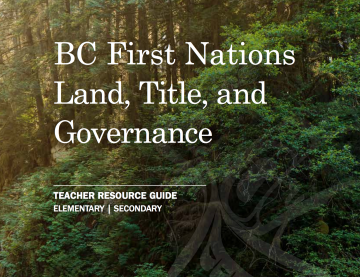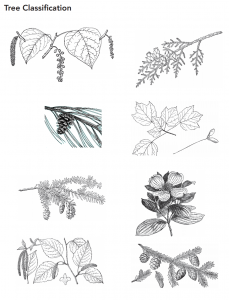The First Nations Education Steering Committee (FNESC) is a policy and advocacy organization that represents and works on behalf of First Nations in British Columbia. FNESC has a mandate to support First Nations students and advance First Nations education in BC. FNESC was founded in 1992 by participants at a provincial First Nations education conference at the Vancouver Friendship Centre. That visionary group of people determined the need for a First Nations-controlled collective organization focused on advancing quality education for all First Nations learners. In the video below, The First Nations Education Steering Committee and the First Nations Schools Association are pleased to share the story of how the BC First Nations Education System developed and grew to its current format.
The First Peoples’ Principles of Learning have been developed by FNESC in British Columbia to reflect First Peoples pedagogy. They represent an attempt to identify common elements in the varied teaching and learning approaches that prevail within particular First Nations societies, it must be recognized that they do not capture the full reality of the approach used in any single First Peoples’ society. An important conclusion for students to draw is that pedagogy in First Nations societies is both dynamic and culturally specific (i.e., grounded in a distinctive language and way of looking at the world). In the video below, the nine principles are described by First Nations educator Laura Tait, who makes personal and cultural connections to support our understanding of their use in an educational context.
The FNESC website offers many digital resources that reflect the First Peoples Principles of Learning as well as the Calls to Action of the Truth and Reconciliation Commission, including the call to “integrate Indigenous Knowledge and teaching methods into classrooms” and “build student capacity for intercultural understanding, empathy and mutual respect”. With the increased inclusion of First Peoples’ content in the changing BC curriculum, there is a need to incorporate unappropriated First Peoples’ perspectives across the curriculum. The First Nations Education Steering Committee and the First Nations Schools Association, in collaboration with teachers and partners, have developed the Learning First Peoples series of teacher resources to support English Language Arts, Science Social Studies and Mathematics courses.
The Authentic First Peoples Resources Guide, for K to Gr. 9 and Online Catalogue helps educators identify authentic First Peoples texts. The annotated listings provided in Authentic First Peoples Resources identify currently available authentic First Peoples texts that students can work with to meet provincial standards related to literacy as well as a variety of specific subject areas. The guide is intended to help BC educators introduce resources that reflect First Peoples knowledge and perspectives into classrooms in respective ways. The inclusion of authentic First Peoples content into classrooms supports all students in developing an understanding of the significant place of First Peoples within the historical and contemporary fabric of this province and provides culturally relevant materials for Indigenous learners in British Columbia.
The Math First Peoples Resource Guide is designed to help teachers of Mathematics Elementary & Secondary in BC extend their existing practice to incorporate new approaches. This digital resource is designed for teachers of Mathematics in British Columbia. It is grounded in the view that increased student success can be achieved through adjustments in pedagogy and approach that make mathematics feel more inclusive and engaging. The BC First Nations Land, Title, and Governance Teacher Resource Guide is designed to support the understanding of traditional and contemporary forms of First Nations governance specific to First Nations in BC. It provides background information relevant to all teachers and students, and provides suggested activities and resources for grades 2 to 12.
Science First Peoples, for grades 5-9, offers information regarding how First Peoples perspectives in science can be recognized and included in science inquiry, as well as curriculum planning suggestions and fully developed multi-grade thematic units corresponding with the Big Ideas and Learning Standards in the BC Provincial Science Curriculum. While this digital resource focuses on grades 5 to 9, it can also be applied to other grade levels and be used in conjunction with the Secondary Science First Peoples Teacher Resource Guide. The FNESC/FNSA Secondary Science First Peoples Teacher Resource Guide provides educators with resources to support the integration of the rich body of First Peoples (unappropriated) knowledge and perspectives into secondary Science classes (as well as other curricular areas).
We must recognize that the wealth of First Peoples’ knowledge is held within communities. These guides need to be used in conjunction with locally-based resources that are developed by or in collaboration with, local communities.





